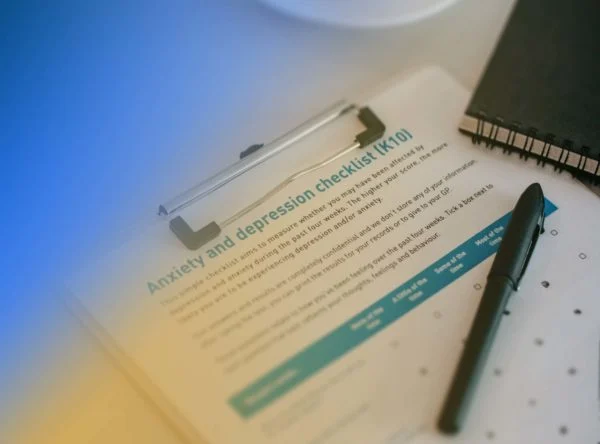

PTSD & Depression Symptoms You Shouldn’t Ignore
The Anxiety and Depression Association of America (ADAA) estimates that roughly 7.7 million Americans suffer from PTSD, or post-traumatic stress disorder, which is the most familiar form of trauma. Similarly, depression is one of the most common mental health disorders in America, and it’s often characterized by an overwhelming feeling of grief or sadness.
PTSD and depression are connected in many ways. Like other forms of trauma, PTSD can lead to depression and anxiety. Together, these mental health conditions can be debilitating, which is why it’s so important to understand their symptoms and get treatment if you believe you’re suffering from either.

What Are the Symptoms of Depression?
Depression often manifests as a crippling sadness that can permeate every aspect of a person’s life. Some of the most common symptoms of depression include:
- Feelings of emptiness or sadness
- Lack of interest in activities you enjoy
- Difficulty sleeping or sleeping too much
- Loss of appetite
- Lack of energy
- Thoughts of harming yourself
- Restless and anxiety
If someone has experienced these symptoms for an extended period, they may have depression and will need help on their journey to mental health recovery.
Signs and Symptoms of PTSD
People can develop PTSD after a traumatic event like a natural disaster, a sexual assault, a robbery, and so on. At the same time, trauma can be highly subjective. If two people experience the same intense event, they can have entirely different reactions to it. That means the signs and symptoms of PTSD will vary from person to person.
If a person develops PTSD, their symptoms can be heightened when they’re triggered. This happens when a person comes into contact with a sensory experience, or even a thought, that reminds them of the traumatic event. Witnessing a car accident may be a trigger, for example, or feeling a general sense of helplessness.
Some of the most common signs and symptoms of PTSD include:
-
- Being easily startled or frightened
- Difficulty sleeping or concentrating
- Experiencing frequent nightmares
- Self-destructive or risky behaviors
- Experiencing vivid flashbacks of traumatic events
- Having intrusive thoughts
- Intense distress at reminders of traumatic events
- Loss of interest in hobbies and activities
- A general feeling of hopelessness
- Feelings of emotional numbness

Mental Health Recovery Treatment Options
It’s important to address the underlying causes of both depression and PTSD if a patient is to have a successful mental health recovery.
Depression will generally be treated through medication and therapy. At Beachway Therapy Center, we use a holistic approach in treating each patient, offering unique treatment plans that utilize medication management approaches combined with clinical intervention at our Florida mental health treatment center.
Because the signs and symptoms of PTSD are subjective, the disorder also requires personalized care. At Beachway, we offer a well-rounded program with a variety of services, including experiential therapies to encourage patients to participate fully and engage in the treatment process, as well as therapies that engage with the root of the trauma.
More generally, mental health recovery treatment options might include one-on-one or group therapy, inpatient rehabilitation, support groups, or other forms of counseling designed to improve a person’s coping and interpersonal skills. More specific treatment types may include:
-
- Cognitive behavior therapy: Cognitive behavior therapy (CBT) is a form of talk therapy focused on helping you see the world and how you behave in it clearly and accurately. It can help teach trauma sufferers to handle triggers, as well as combatting depressive thought patterns.Cognitive behavior therapy: Cognitive behavior therapy (CBT) is a form of talk therapy focused on helping you see the world and how you behave in it clearly and accurately. It can help teach trauma sufferers to handle triggers, as well as combatting depressive thought patterns.
- Eye movement desensitization and reprocessing: Eye movement desensitization and reprocessing (EMDR) is a therapeutic technique designed around the idea that specific eye movements can decrease the effect of negative thought patterns. It’s often used to treat patients with trauma, including PTSD.
- Neurotherapy: Neurotherapy involves gathering data about brain activity to help treatment providers better understand what could be leading to behaviors or symptoms. For trauma sufferers, it can help shift them from an aroused, anxious state to a calmer one.
- Rational Emotive Behavior Therapy: Rational Emotive Behavior Therapy (REBT) treats mental health disorders by reversing negative, irrational thoughts and emotions and replacing them with a healthier, more positive worldview.
- Solution-focused therapy: With solution-focused therapy, individuals focus on their strengths and develop sustainable strategies to accomplish goals. This therapy can lead to patients finding resolutions and making positive changes more quickly than other treatments based on pathology and past life events.
Learn More About PTSD and Depression Treatment at Beachway
PTSD and depression are both serious mental health disorders that can negatively impact a person’s ability to lead a happy and successful life. At the same time, they often go undiagnosed because the symptoms and behavior patterns can both vary from person to person.
This same flexibility can make them difficult to treat, which is why addressing PTSD and depression will usually require personalized care from qualified medical professionals. At Beachway, our Florida mental health programs focus on a multiple-therapy, holistic approach that takes into account all facets of the person. If you or a loved one is interested in getting help, contact us today.


